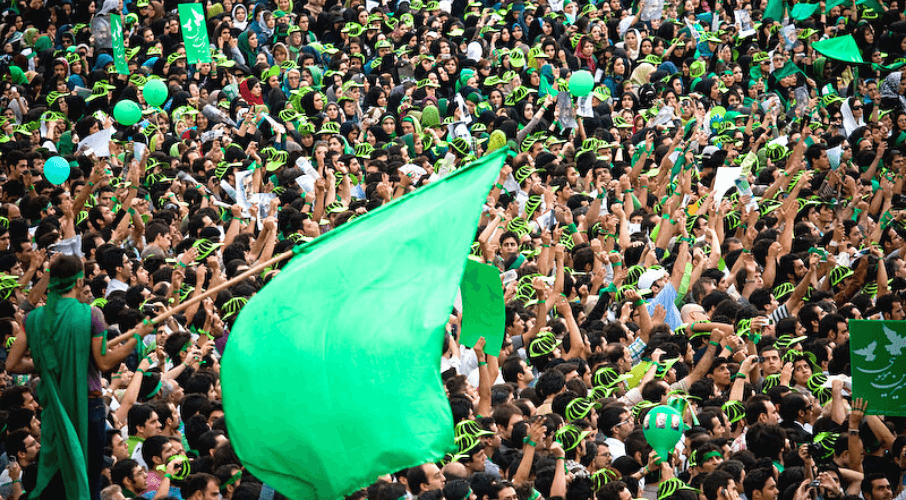 If Abraham serves as inspiration for a new Arab-Israeli peace, then Cyrus serves as aspiration for an Israeli-Iranian one, write Mariam Memarsadeghi and Shuvaloy Majumdar in the Jerusalem Post.
If Abraham serves as inspiration for a new Arab-Israeli peace, then Cyrus serves as aspiration for an Israeli-Iranian one, write Mariam Memarsadeghi and Shuvaloy Majumdar in the Jerusalem Post.
By Mariam Memarsadeghi and Shuvaloy Majumdar, March 3, 2021
If Abraham serves as inspiration for a new Arab-Israeli peace, then Cyrus serves as aspiration for an Israeli-Iranian one. Where the United Arab Emirates succeeded at placing a satellite in orbit over Mars, the Iranian regime obsesses over developing a ballistic missile capable of delivering a nuclear payload. It is an obsession that has led to destruction.
Since the 1979 revolution, the Islamist theocracy ruling Iran has demonized the State of Israel, terrorized the Jewish state, and pursued its annihilation. It cultivates hatred for Israel as a nation and for Jews as a people, but in the four decades since radical Islamists’ violent takeover, it has only managed to destroy Iran.
Israel has thrived. As a free nation it has prospered, now taking its legitimate place as a respected partner defining a regional peace that champions modernity over its medieval rivals.
Not only have Iran’s tyrants failed in their objective of eliminating Israel, their ideological hatreds have principally failed Iranians themselves. Today, respect and curiosity for the Israeli state on the Iranian street is common, especially among those who most despise Supreme Leader Ali Khamenei’s regime. Iranians yearn for restoring an open, modern and thriving nation, in great part imbued by pride for an ancient heritage and a pre-revolutionary, 20th-century modernism that celebrated cosmopolitan difference, religious freedom and friendship with Jews and Israel.
That ideological propaganda would fail to be convincing is nothing new. As with subjects under Communist and fascist regimes, Iranians have long resisted the Orwellian control exercised by ruling clerics, seen on state media, and read in school textbooks. To them, the regime’s opposition to Israel’s existence affirms precisely the opposite sentiment; a seduction also reflected in the Iranian people’s esteem for the “Great Satan,” for equality between sexes, the liberty to sing and dance, and the right to live free from fear, and to earn an honest living.
Iranians yearning for freedom at home and for peace with their neighbors have a special appreciation for Israel’s investments in countering their tyrants. Iranians rejoiced in private and under the security of pseudonymous social media accounts on the occasion of Mohsen Fakhrizadeh’s assassination, upon the avalanche of information released from a hair-raising heist of a clandestine nuclear archive, the Stuxnet attack on Iran’s nuclear program, and the sabotage of regime infrastructure. They welcomed representations by Prime Minister Benjamin Netanyahu to the United Nations General Assembly and the US Congress about the regime’s nefarious activities, as well as his personal outreach to the Iranian people.
Iranians are keen to engage with Israel’s pro-freedom public diplomacy, not least because of the large numbers of Jews of Iranian descent who consecrate Iran’s noble history; a history that provided the world its first universal declaration of human rights, carved upon a clay cylinder, and exalted by Jews because it corroborates the events in the Old Testament: the liberation of Jews from Babylon by King Cyrus, and their safe return to Jerusalem to rebuild their Temple. Some 2,600 years ago, ancient Persian leadership cultivated a most modern sense of pluralism and peaceful co-existence, grounded in the universality of human rights.
Iran is also the burial place of Esther and Mordechai, and is still, despite the designs of regime fanatics, home to the largest community of Jews in the Middle East after the State of Israel. All of this makes peace and friendship between the people of Iran and Israel grounded in common history and most natural. It also underscores the sad irony of the Iranian people being left outside the triumphant peace agreements the Abraham Accords afford.
Victoria Coates and Len Khodorkovsky have the hopeful idea of investing in the “Cyrus Accords,” a promise to revive an ancient bond between Iran and Israel. For Iranians to reach this destiny with Israel, changing a regime obsessed with war holds primacy over all else. With an American turn from maximum pressure to “Appeasement 2.0,” Israel and her allies could undertake a historic effort strengthening the democratic resilience of the people of Iran.
Naysayers will be abundant, but support for the struggle of dissidents, labor organizers, women’s-rights activists, student leaders and ordinary Iranians against one of the world’s most brutal tyrannies is not for the faint-hearted.
Israel and its like-minded partners can commit to:
1) supporting robust Persian-language broadcasting focused on Iran’s democracy movement, its tolerant past, and the opportunities of Israel’s flourishing democratic society,
2) a transparency initiative to expose the anatomy of how Khamenei’s cohorts raid the people’s treasury in exporting terrorism and war,
3) an international awareness campaign about the regime’s human rights atrocities, its antisemitism, and its Holocaust-denial,
4) providing sustained and emergency access for Iranians to organize online, particularly during regime shutdowns, and
5) establishing a Cyrus Trust for civic institutions that span the academy, arts, history and civil society, bridging Iranian, Israeli and Arab peoples.
The most disruptive investment that can be made against the regime’s four-decade war machine are in the very ideas that animate human life. The irreducible concept of the rights, dignity and liberty of every person holds a longevity from three millennia into our past, capable of surviving a temporary installation of medieval tyrants. In this, the promise of Abraham and of Cyrus can serve as a guide for the basis of unity between the peoples of the region.
Mariam Memarsadeghi is a leading proponent for a democratic Iran. Shuvaloy Majumdar is former director of policy to Canada’s foreign minister and Munk senior fellow for foreign policy at the Macdonald-Laurier Institute.




